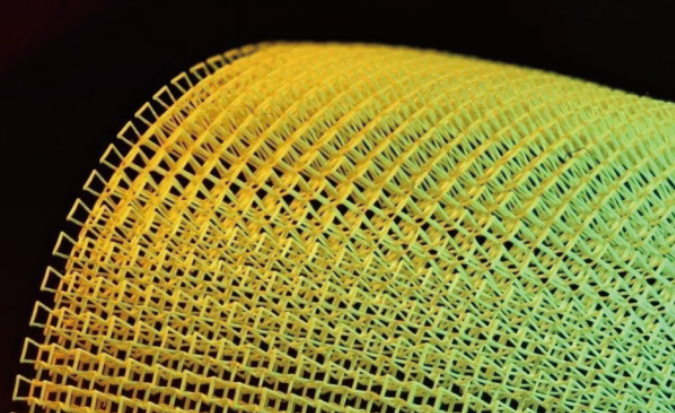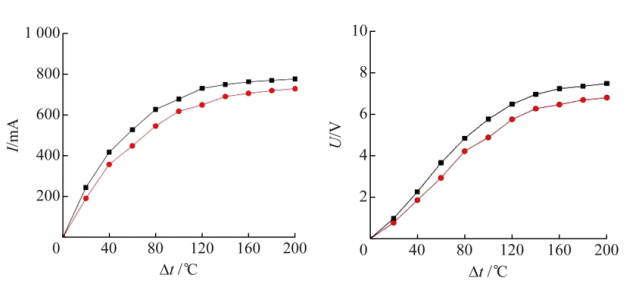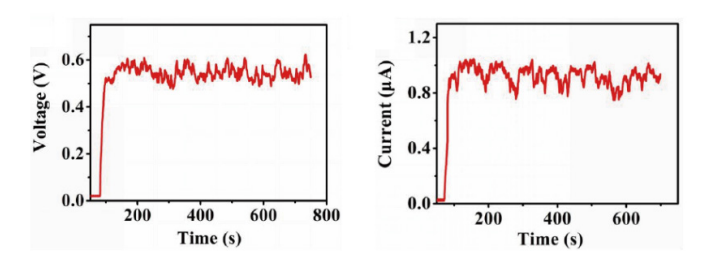

Simplify Testing of Electrical Parameters of Nanomaterials Using SMU
Simplify the test process and make the material test standardized solution enquiry
Position:Home > Solutions > Material research
overview
Nanomaterials are defined as a class of ultrafine materials with a particle size between 1 and 100 nanometers, which have some special physical and chemical properties such as surface effects, small size effects, and macroscopic quantum tunneling effects. Due to the characteristics of large specific surface area, small particle size, and high surface atomic ratio, nanomaterials have unique properties in many aspects such as electricity, thermodynamics, and catalysis. According to the expression characteristics of the nanometer scale in space, it can be divided into zero-dimensional nanomaterials, namely nanoparticle materials, one-dimensional nanomaterials (such as nanowires, rods, silk, tubes and fibers, etc.), two-dimensional nanomaterials (such as nanofilms, nanodisk, superlattice, etc.), nanostructure materials, that is, nanospace materials (such as mesoporous materials, etc.). According to the different functions and applications of nanomaterials, they can be divided into nano power generation materials, nano magnetic materials, nano catalytic materials, nano smart materials, nano wave absorbing materials, nano thermosensitive materials, etc.

In the research and development of nanomaterials, it is particularly important to characterize materials from different dimensions, which is a key link in evaluating material properties and research and development processes. Common nanomaterial characterizations include structural characterization, compositional analysis, morphology characterization, and performance characterization—light, electricity, magnetism, heat, force, etc. Characterization of electrical properties of nanomaterials, that is, to apply excitation sources such as pressure, temperature, voltage or current to the manufactured nanomaterials or devices, and to test the relevant electrical performance parameters of the samples under different types and different intensities of excitation, such as current ( I), voltage (V) or resistance (Ω) changes, which can be used for further analysis of nanomaterials.
Challenges in Electrical Testing of Nanomaterials/Nanoelectronic Devices
With the wide application of nanomaterials in different fields, the research and development of new nanomaterials have different characteristics from the past, such as advanced materials, nano-temperature difference materials, nano-sensors, etc. Due to the variety and functions of nanomaterials, the testing of nanomaterials faces the following testing challenges:
The test signal is weak. The testing of nanomaterials is mostly in the stage of sample development and testing, and it is necessary to test the voltage and current generated by the sample in a unit area, which seems to be a weak signal. Especially the current signal can be as low as nA, even pA level. Therefore, this requires the test instrument to have accurate weak signal detection capability.
External noise interference. Since the test signal of nanomaterials is weak, and some material properties are easily disturbed by changes in the external environment, it is necessary to effectively shield the external environmental noise that is not related to the test during the test. For example, the four-wire system is used to test to reduce the line loss and voltage drop; the three-coaxial Guard method is used to reduce the cable leakage current.
There are various ways to test. Most nanomaterials have certain response characteristics under the excitation of light, heat, humidity and other external environments. Therefore, in the research and development of nanomaterials, it is often necessary to test the response output ability of samples to different external excitation sources. Diverse tests enable the test instrument to have a variety of test functions, such as constant voltage test, l-V scan test, V-t test, pulse test, multi-channel test, etc.
Electrical Characterization of Nanomaterials Using Digital Source measure Meter
One of the best tools for performing electrical parameter characterization is a source measure meter (SMU). As an independent voltage source or current source, the digital source measure meter can output constant voltage, constant current, or pulse signals, and can also be used as a meter to measure voltage or current; it supports Trig triggering, and can realize the linkage work of multiple instruments; for organic For OFET-type three-terminal nano-devices and multi-sample verification tests, a complete multi-channel I-V test system can be built directly through two digital source measure meters or plug-in source measure meters.
Precise Source measure Meter (SMU) Solutions
The S series source measure meters are high-precision, large dynamic range, and the first localized source measure meters developed by PRECISE for many years. They integrate the input, output and measurement functions of voltage and current. The voltage range is from 300μV to 300V, the current is from 100pA to 1A, the output accuracy reaches 0.1%, and the maximum power is 30W. At the same time, it supports Trig trigger interface, which can realize synchronous trigger testing of multiple instruments.
S series source measure meter
P series desktop pulse source measure meter is a source measure unit with high precision, wide measurement range and strong output capability launched by Wuhan Precise Instrument Co., Ltd. The product supports two working modes of DC and pulse, supports four-quadrant work, and has various functions such as voltage and current input and output, measurement, and load test. The maximum output voltage reaches 300V, the maximum pulse test current reaches 10A, the minimum current resolution is 1pA, and the output accuracy reaches 0.1%.
CS series plug-in source measure meter is a high-precision, large dynamic, plug-in source measure meter developed by Precise for many years. It integrates various functions such as voltage and current input and output, and measurement. The maximum output voltage is 300v, and the maximum output current is 1A. Support four-quadrant work. It has the characteristics of high channel density, strong synchronous trigger function, and high efficiency of multi-device combination. Precise has developed a wealth of sub-cards that can be selected by users, which is convenient for users to flexibly configure different sub-cards according to functional performance requirements. Therefore, the CS plug-in source measure unit can be widely used in the analysis of electrical characteristics of nano-devices and materials.
At present, CS100, CS200, CS300 and CS400 sub-cards have been developed, among which CS100, CS200, CS300 are single-card single-channel, CS400 is single-card four-channel, and the 4 channels in the card share the same ground. When using a host with 10 cards, the user can achieve a configuration of up to 40 channels, and the user can choose different sub-cards to achieve the best cost-effective combination according to the actual situation.

S series source measure meters create a test solution for nanomaterial temperature difference devices
This program is mainly aimed at nano-material temperature difference devices. Under different temperature excitations, the output voltage and output current data are tested, and the open circuit voltage or output current data is obtained in the source measure meter.

Output current and output voltage test curve
S/CS series source measure meters to create a test solution for nano-hydrovoltaic power generation materials
This program is mainly used to test the curves of output voltage and output current changing with time of nano-hydrovoltaic power generation materials to verify the power generation performance of different structural materials, and obtain l-t or V-t data in the digital source measure meter.

V-t curve and l-t curve
S/CS series source measure meters create a test solution for nano-organic transistor devices
Output characteristic curve test
When different gate voltages (VGs) are applied, the curve obtained by the source-drain current lsb changing with the source-drain voltage Vos is called the output characteristic curve.
Transfer characteristic curve test
Under the application of different source-drain voltage VDs, the curve obtained by changing the source-drain current IDs with the gate voltage VGs is called the transfer characteristic curve.
Conclusion
Wuhan precise has been focusing on the development of electrical performance test instruments such as nano-materials, sensors, and semiconductor devices. Integrate plug-in source measure meters and other products. The product has the characteristics of high test accuracy and strong weak signal detection capability. Efficient and cost-effective nano-material test solutions can be configured according to user test requirements, and can be widely used in the R&D and production of nano-materials, sensors, semiconductor devices and other products.